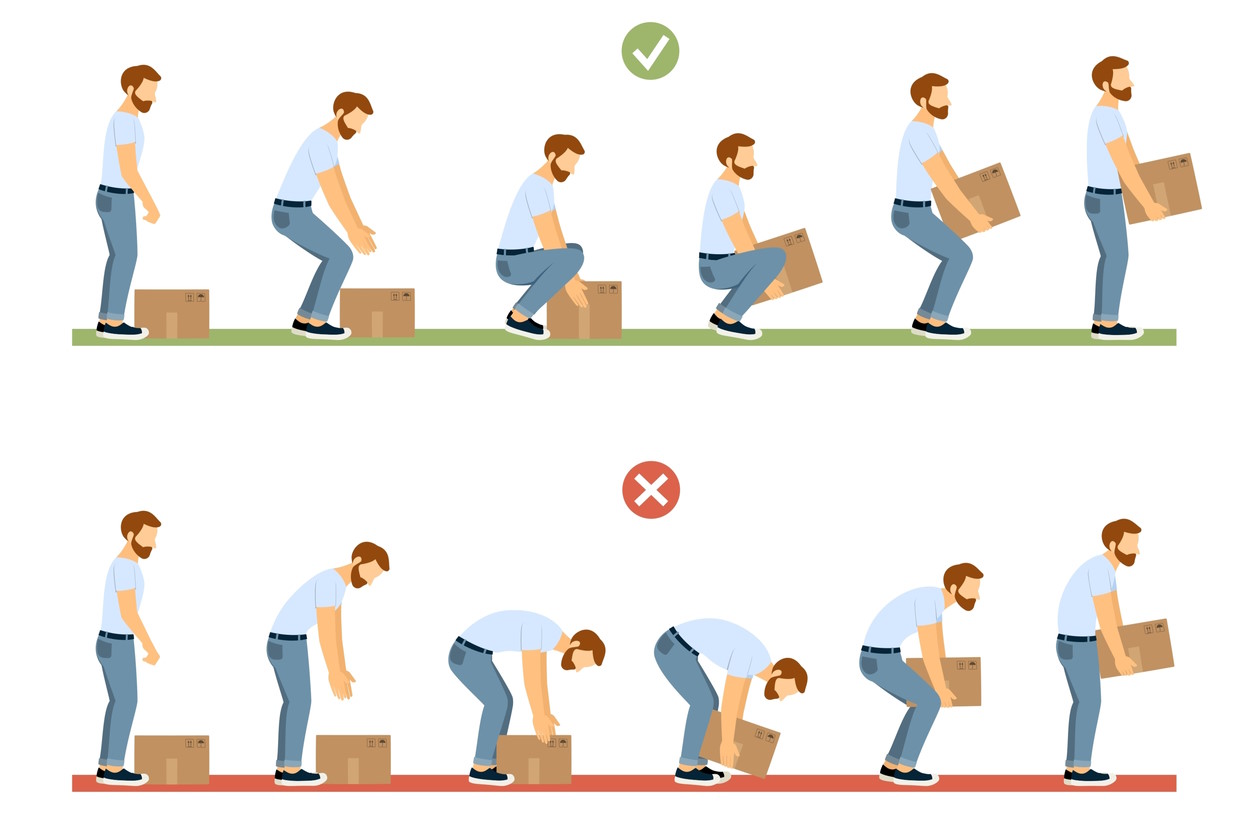Heavy Haul Trucking Companies Oregon: Navigating Oversized Loads in the Pacific Northwest cars.truckstrend.com
Oregon, with its diverse economy spanning forestry, construction, renewable energy, manufacturing, and agriculture, frequently encounters a unique logistical challenge: moving exceptionally large, heavy, or unusually shaped cargo. This isn’t a job for standard freight carriers. It requires the specialized expertise of heavy haul trucking companies Oregon – a niche sector dedicated to transporting what others can’t.
Heavy haul trucking, often referred to as oversized or over-dimensional transport, goes beyond the limits of conventional freight in terms of weight, width, height, or length. It involves meticulous planning, specialized equipment, extensive permitting, and a deep understanding of state and federal regulations. For businesses operating within or through the Beaver State, partnering with the right heavy haul company is not just a convenience; it’s a critical component for project success, safety, and compliance. This comprehensive guide will delve into the intricacies of heavy haul trucking in Oregon, offering insights into its importance, processes, challenges, and how to select the best partner for your oversized transportation needs.
Heavy Haul Trucking Companies Oregon: Navigating Oversized Loads in the Pacific Northwest
What Defines Heavy Haul Trucking in Oregon?
At its core, heavy haul trucking is about moving cargo that exceeds the standard legal limits for dimensions and/or weight on public roads. In Oregon, these limits are primarily governed by the Oregon Department of Transportation (ODOT).
- Weight: While standard trucks have gross vehicle weight limits, heavy haul loads can range from tens of thousands of pounds to hundreds of tons, often requiring multi-axle trailers to distribute the weight evenly and safely.
- Dimensions:
- Width: Typically exceeding 8 feet 6 inches.
- Height: Often over 13 feet 6 inches.
- Length: Frequently more than 53 feet (for a single trailer) or 75 feet (for a truck-trailer combination).

- Permitting: Any load exceeding these standard limits requires special permits from ODOT, and potentially from local jurisdictions or other states if the route crosses borders. These permits dictate specific routes, travel times (often restricted to daylight hours, non-peak times, or specific days), and safety requirements like pilot cars.
- Equipment: Heavy haul companies utilize specialized fleets including:
- Flatbeds: For general oversized items.
- Step-decks (Drop Decks): Lower deck height for taller loads.
- Removable Gooseneck (RGN) Trailers: For self-propelled machinery, allowing equipment to be driven onto the trailer.
- Double Drops/Lowboys: Even lower deck height for extremely tall cargo.
- Multi-Axle Trailers: To distribute immense weight over more axles, reducing pressure on roads and bridges.
- Specialized Heavy Haul Trucks (Tractors): More powerful engines and heavier frames to pull massive loads.


- Safety & Logistics: Beyond permits and equipment, heavy haul demands precise route planning, bridge analysis, utility line checks, and often involves pilot cars (escorts) to warn other motorists and navigate tight turns or obstacles.
Why Oregon Needs Heavy Haul: Key Industries and Applications
Oregon’s economic landscape creates a constant demand for heavy haul services. Several key industries rely heavily on the ability to move massive components and machinery:
- Forestry and Logging: Oregon is a major timber state. Transporting massive logs, feller bunchers, log loaders, and other heavy logging equipment from remote forests to mills is a cornerstone of heavy haul in the region.
- Construction and Infrastructure Development: From new bridges and highways to commercial buildings and industrial complexes, construction projects frequently require the movement of large excavators, cranes, bulldozers, pre-fabricated concrete sections, and steel beams.
- Renewable Energy: Oregon is a leader in wind and solar energy. Moving colossal wind turbine blades, tower sections, nacelles, and transformer units to remote wind farms or solar sites across diverse terrain is a highly specialized heavy haul operation.
- Manufacturing and Industrial: Oregon’s manufacturing sector, including aerospace, semiconductor, and advanced materials, often produces or imports large machinery, industrial presses, or custom-fabricated components that require specialized transport.
- Agriculture: Large modern farm equipment, such as combines, harvesters, and irrigation systems, often exceed standard road dimensions, necessitating heavy haul transport between farms or from dealerships.
- Aerospace and Marine: Components for aircraft manufacturing or parts for shipbuilding and repair often require bespoke heavy haul solutions.
Choosing the Right Heavy Haul Company in Oregon: Key Considerations
Selecting the ideal heavy haul partner in Oregon is paramount for a successful and compliant transport. Here’s what to look for:
- Experience and Reputation: Look for companies with a proven track record specifically in Oregon. Check their safety ratings (DOT compliance, CSA scores), client testimonials, and industry affiliations. Experience with Oregon’s unique terrain (mountains, coast, urban areas) is crucial.
- Permitting Expertise: Oregon’s ODOT permitting process can be complex. A reputable heavy haul company will have dedicated personnel who are experts in acquiring all necessary state, county, and local permits efficiently and accurately. They should also understand multi-state permitting if your load crosses borders.
- Equipment Fleet: Ensure the company possesses the specific types of trailers (RGN, lowboy, multi-axle, etc.) and heavy-duty tractors suitable for your load’s dimensions and weight. A diverse fleet indicates adaptability.
- Insurance and Liability: Verify that the company carries comprehensive insurance coverage for your cargo (cargo insurance) and general liability. Understand their limits and your responsibilities.
- Logistics and Planning Capabilities: A top-tier company will offer thorough route surveys, identify potential obstacles (low bridges, tight turns, utility lines), coordinate pilot cars and police escorts, and provide detailed project management for the entire transport.
- Communication and Transparency: You need a partner who provides clear, consistent communication throughout the process, from initial quote to final delivery. This includes real-time tracking capabilities and immediate notification of any unforeseen delays.
- Safety Record: Prioritize safety above all else. Inquire about their safety protocols, driver training programs (especially for oversized loads), and their history of incidents. A strong safety culture protects your cargo, their personnel, and the public.
The Heavy Haul Process: From Quote to Delivery
While each heavy haul project is unique, a general process is followed:
- Initial Inquiry & Load Assessment: You provide the company with detailed information about your cargo: exact dimensions (length, width, height), weight, origin, destination, and desired timeline. Photos or schematics are highly beneficial.
- Quotation & Contract: The heavy haul company assesses the information, determines the required equipment, plans a preliminary route, estimates permitting costs, and provides a comprehensive quote. Once accepted, a contract is signed outlining terms, services, and pricing.
- Route Planning & Permitting: This is a critical phase. The company’s logistics team plans the safest and most efficient route, considering road conditions, bridge capacities, overhead clearances, and potential obstacles. They then apply for all necessary ODOT and local permits, which can take days or even weeks depending on the load’s complexity and the jurisdictions involved.
- Equipment Assignment & Loading: The appropriate heavy haul truck and specialized trailer are assigned. Professional riggers and drivers work to safely load and secure the cargo, often requiring specialized cranes or ramps.
- Execution & Monitoring: The transport begins, adhering strictly to permit requirements (e.g., travel times, pilot car presence). The company monitors the progress, handles any unforeseen issues, and keeps you informed.
- Unloading & Project Completion: Upon arrival, the cargo is safely unloaded at the destination. The project is completed once all documentation is finalized.
Challenges and Solutions in Oregon Heavy Haul
Oregon’s diverse geography and regulatory environment present unique challenges for heavy haul:
- Geographical Diversity: From the dense forests and winding roads of the Coast Range and Cascades to the open plains of Eastern Oregon and the urban sprawl of the Willamette Valley, routes demand precise planning and experienced drivers.
- Solution: Advanced route mapping software, detailed surveys, and drivers with extensive experience navigating Oregon’s varied terrain.
- Weather Conditions: Oregon’s weather can be unpredictable, with heavy rain, snow in mountain passes, and strong winds. These conditions can cause delays, reduce visibility, and impact road safety.
- Solution: Real-time weather monitoring, flexible scheduling, and stringent safety protocols that allow for halting transport during adverse conditions.
- Permit Complexity: Navigating ODOT regulations, local city ordinances, and potentially multi-state permits can be time-consuming and complex.
- Solution: Dedicated, in-house permitting teams with up-to-date knowledge of all regulations and strong relationships with permitting authorities.
- Infrastructure Limitations: Older bridges may have weight restrictions, and certain roads may have width or height limitations (e.g., underpasses, utility lines).
- Solution: Thorough route surveys, bridge analyses by engineers, and coordination with utility companies for temporary line lifting if necessary.
Tips for Businesses Needing Heavy Haul Services in Oregon
If your business needs to move an oversized or overweight load in Oregon, keep these tips in mind:
- Plan Far in Advance: Heavy haul is not a last-minute service. Permitting, equipment scheduling, and route planning take time. The more lead time you provide, the smoother the process will be.
- Provide Accurate Details: Be meticulous with your load’s dimensions, weight, and any special handling requirements. Inaccurate information can lead to delays, fines, or even unsafe conditions.
- Understand the Permitting Process: While your heavy haul company handles the permits, understanding the general timeline and requirements will help you manage expectations.
- Prioritize Safety Over Cost Alone: While cost is a factor, never compromise on safety. A slightly cheaper bid from a less reputable company could lead to significant delays, damages, or legal issues.
- Communicate Openly: Maintain clear and consistent communication with your chosen heavy haul carrier throughout the project.
Estimated Cost Factors and Ranges for Heavy Haul Trucking in Oregon
It’s crucial to understand that heavy haul trucking costs are highly variable. They depend on numerous factors, making a fixed price list impossible. The table below provides a general overview of common cost factors and very broad estimated ranges. Always obtain a specific quote tailored to your unique load.
| Service/Factor | Load Characteristics/Description | Typical Cost Factors Disclaimer: This table provides estimated costs and factors for heavy haul in Oregon. Actual costs can vary significantly depending on specific load details, permits required, specific route complexity, timing, total distance, company policies, and market conditions. Always request a detailed quote directly from multiple qualified companies.
| Category | Typical Example Load/Factors | Key Cost Factors Involved




